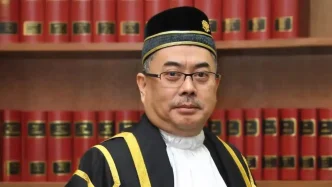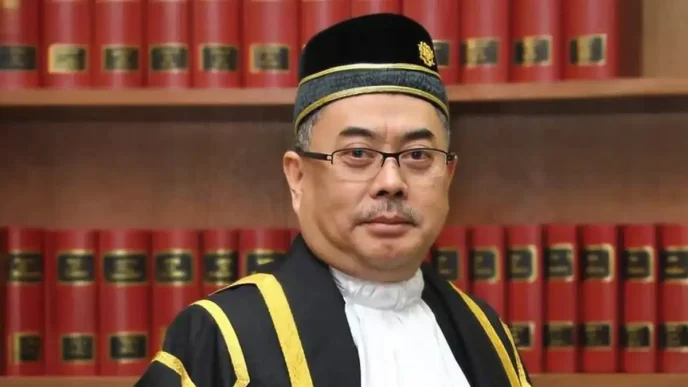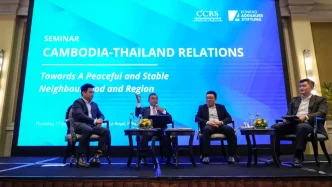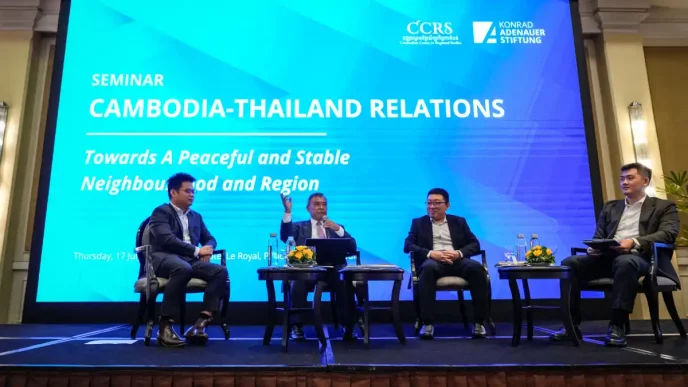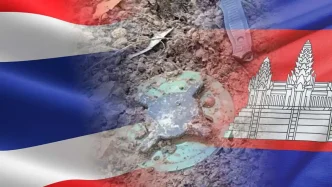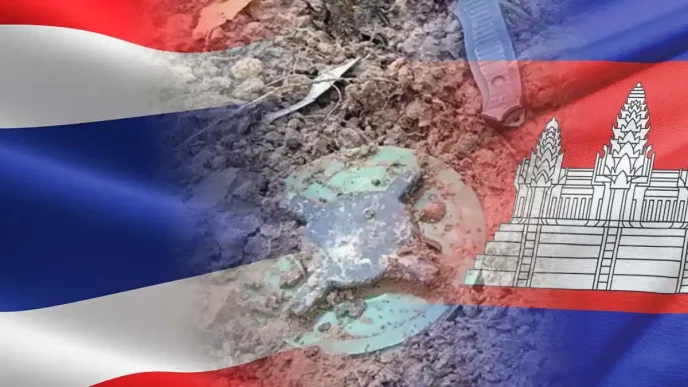In a stark reminder of the lingering constraints on artistic freedom in Indonesia, a little-known post-punk band from Purbalingga, Central Java, has found itself at the centre of a national controversy. Sukatani, a duo whose debut album Gelap Gempita (Dark Excited) was released earlier this year, has faced weeks of harassment from local police over their song “Bayar Bayar Bayar” (Pay Pay Pay), a track widely interpreted as a critique of police corruption. What began as an attempt to suppress the song has backfired spectacularly, turning it into a viral anthem for dissent and reigniting debates about censorship, more than 25 years after the fall of Soeharto’s authoritarian New Order regime.
The saga of Sukatani underscores the fragile state of free expression in Indonesia, where Reformasi—the democratic transition that began in 1998—has not fully eradicated the mechanisms of state control over art and dissent. While overt censorship of music is rarer today than under Soeharto, when it does occur, it can be as invasive and damaging as in the past. The band’s ordeal has also sparked a broader conversation about the so-called “Streisand effect,” where attempts to suppress information only amplify its reach, as well as the personal toll of such crackdowns on artists.
A Song That Struck a Nerve
“Bayar Bayar Bayar” was initially a niche track, circulating among Sukatani’s small fanbase in Indonesia’s underground music scene. Its raw energy and biting lyrics, which many interpret as an accusation of police extortion, resonated with a generation frustrated by systemic issues. However, it wasn’t until local police in Central Java took notice—and action—that the song gained widespread attention. Over several weeks, low-level officers reportedly pressured the band to remove the track from streaming platforms. The duo eventually complied, but the move only fuelled public curiosity.
Far from silencing the song, the censorship catapulted it into the spotlight. Within days, “Bayar Bayar Bayar” became a viral hit across social media, inspiring dozens of covers by amateur musicians and even catching the eye of international music critic Anthony Fantano, who defended the track in a widely viewed online video. More significantly, the song has become a rallying cry for thousands of students protesting President Prabowo Subianto’s recent austerity measures, which have sparked unrest across the country. At demonstrations in Jakarta and other cities, lyrics from the song have echoed through megaphones, symbolising broader discontent with authority.
The irony is not lost on observers. “This is a textbook case of the Streisand effect,” noted a Jakarta-based cultural commentator, referring to the phenomenon where efforts to hide something only draw more attention to it. Had the police ignored the song, Sukatani might have remained an obscure act. Instead, their music has become a symbol of resistance.
Personal Costs of Public Exposure
While the song’s popularity has soared, the personal repercussions for Sukatani’s members have been severe. Modelled after the Russian punk collective Pussy Riot, the duo—singer Novi Citra Indayati and bandmate Muhammad Syifa al Lutfi—have always performed anonymously, donning masks to protect their identities. This anonymity was shattered when they were allegedly forced to record a video apology without their masks, effectively doxing them to the public.
The fallout was immediate and devastating. Novi, who worked as an elementary school teacher at an Islamic school in Purbalingga, was forced to resign following the video’s release. The exposure of her identity not only cost her livelihood but also subjected her to public scrutiny in a conservative community. Reports also suggest that both band members have faced personal harassment, with unconfirmed accounts stating they went “missing” while travelling to Banyuwangi in East Java. Though their current whereabouts remain unclear, the incident highlights the profound risks artists face when challenging authority in Indonesia.
The forced apology video, if indeed recorded under duress as alleged, raises serious ethical questions about the tactics employed by local authorities. It also recalls darker chapters of Indonesia’s history, when dissenters were routinely silenced through intimidation under the New Order regime (1966-1998). While today’s political climate is more open, Sukatani’s experience suggests that old habits of control persist at local levels, often with little oversight.
Echoes of the New Order
Indonesia’s history of musical censorship provides a sobering backdrop to Sukatani’s plight. During Soeharto’s rule, the state apparatus was hyper-vigilant for any sign of dissent, often interpreting even subtle critiques as threats. Folk singer Iwan Fals, now a national icon, spent 12 days in a military detention centre in Riau in the 1980s after performing “Mbak Tini” (Sister Tini), a song about a woman driven to prostitution after losing her job. Authorities deemed it an insult to Soeharto’s wife, Siti Hartinah, nicknamed Madame Tin.
Similarly, in 1991, the Information Ministry banned radio airplay of “Pak Tua” (Old Man) by the band Elpamas, interpreting it as a veiled jab at the ageing dictator. Yet, as with Sukatani’s song, censorship often had the opposite effect. Iwan Fals, emboldened by public support, went on to write more explicit protest songs like “Bento” and “Bongkar,” the latter becoming an anthem for the 1998 protests that ultimately toppled Soeharto.
These historical parallels are not mere anecdotes; they reflect a persistent tension between artistic expression and state power in Indonesia. While the legal framework for censorship has evolved since Reformasi, with greater protections for free speech enshrined in the 1945 Constitution (as amended), enforcement at the local level can still mirror authoritarian practices. For artists like Sukatani, who lack the resources or public profile of figures like Iwan Fals, the consequences of such crackdowns are disproportionately harsh.
The Power of Music in Protest
Music has long been a vehicle for protest in Indonesia, as in many parts of the world. Songs have a unique ability to distil complex grievances into memorable melodies and lyrics, galvanising communities in ways that speeches or manifestos often cannot. Under Soeharto, banned songs were shared through underground cassette tapes, their subversive messages spreading despite state efforts to suppress them. Today, the internet and streaming platforms have amplified this dynamic, making it nearly impossible to fully censor a track once it gains traction.
“Bayar Bayar Bayar” exemplifies this phenomenon. Its catchy rhythm and defiant tone have made it a cultural touchstone at a time of growing frustration with government policies. Students chanting its lyrics at protests are not just expressing anger at police behaviour but also at broader systemic issues, including economic inequality exacerbated by austerity measures. If anything, the attempt to ban the song has imbued it with greater symbolic weight, turning Sukatani into reluctant heroes of a new generation.
Yet, this heroism comes at a cost. The band’s experience raises critical questions about how far Indonesia has truly progressed since the New Order. While overt state censorship is less common under President Prabowo Subianto’s administration, the actions of local police in Purbalingga suggest that informal mechanisms of control remain intact. This discrepancy between national policy and local practice is a recurring challenge in Indonesia’s decentralised governance structure, where regional authorities often wield significant autonomy.
A Broader Struggle for Artistic Freedom
Sukatani’s ordeal is not an isolated incident but part of a broader struggle for artistic freedom across South East Asia. In neighbouring countries like Thailand and Myanmar, musicians and artists face similar pressures, often under laws that prioritise state security over individual rights. In Indonesia, while the legal landscape has improved, laws such as the Electronic Information and Transactions Law (ITE Law) have been criticised for their vague provisions, which can be weaponised against dissenters, including artists.
For now, Sukatani’s future remains uncertain. Their album Gelap Gempita has gained a cult following, but the personal toll of their exposure may deter them from continuing their work. The resilience of protest music, however, suggests that their message will endure, whether through their own performances or the countless covers now circulating online. As history has shown, attempts to silence songs often fail—melodies and lyrics have a way of outlasting even the most determined censorship.
The case of “Bayar Bayar Bayar” serves as both a warning and an inspiration. It warns of the fragility of artistic freedom in Indonesia, where local authorities can still act with impunity. Yet it also inspires, reminding us of music’s power to challenge injustice and unite voices in defiance. For a global audience, Sukatani’s story is a call to pay attention—not just to their music, but to the broader fight for expression in a region still grappling with its authoritarian past.



